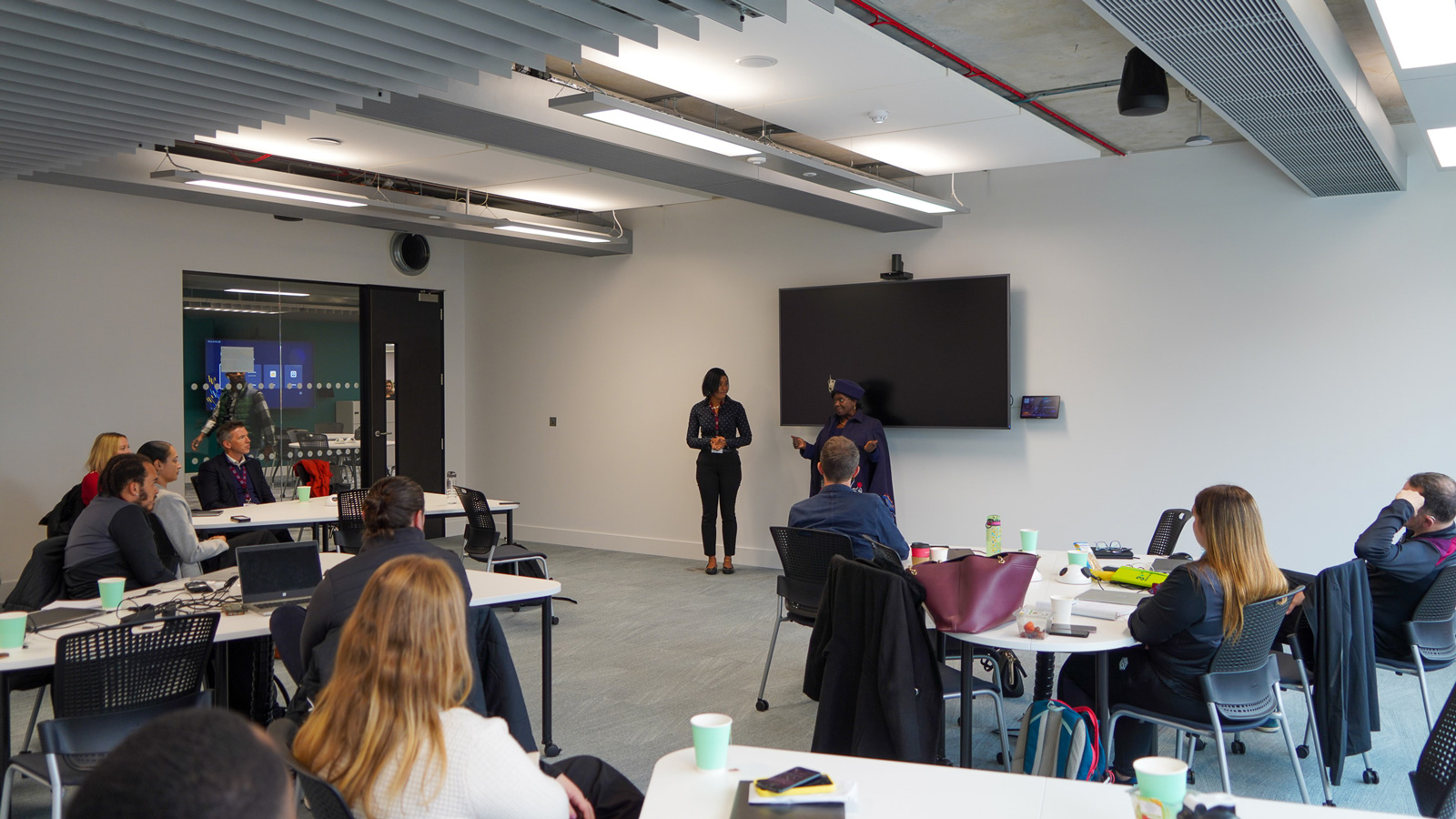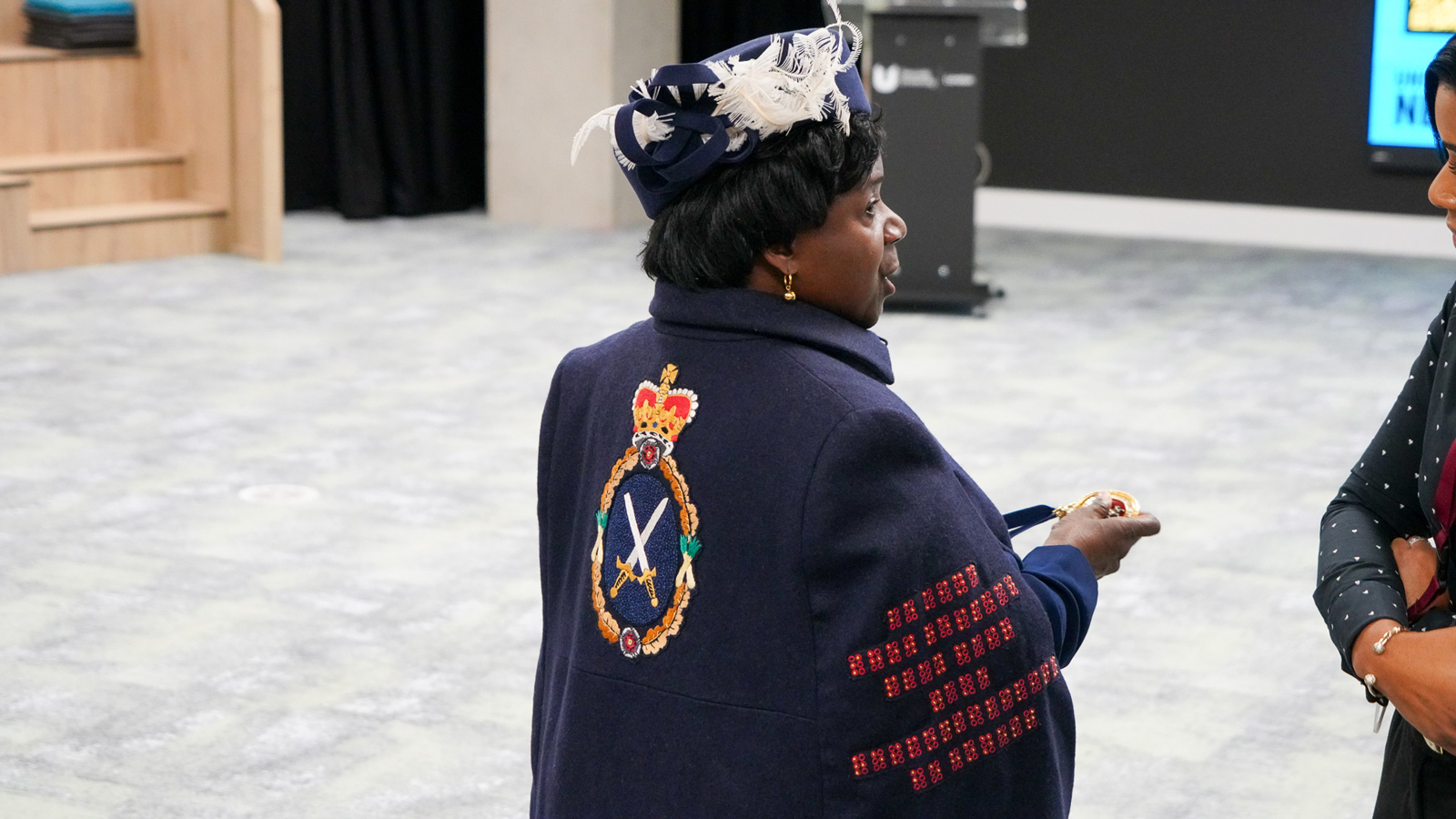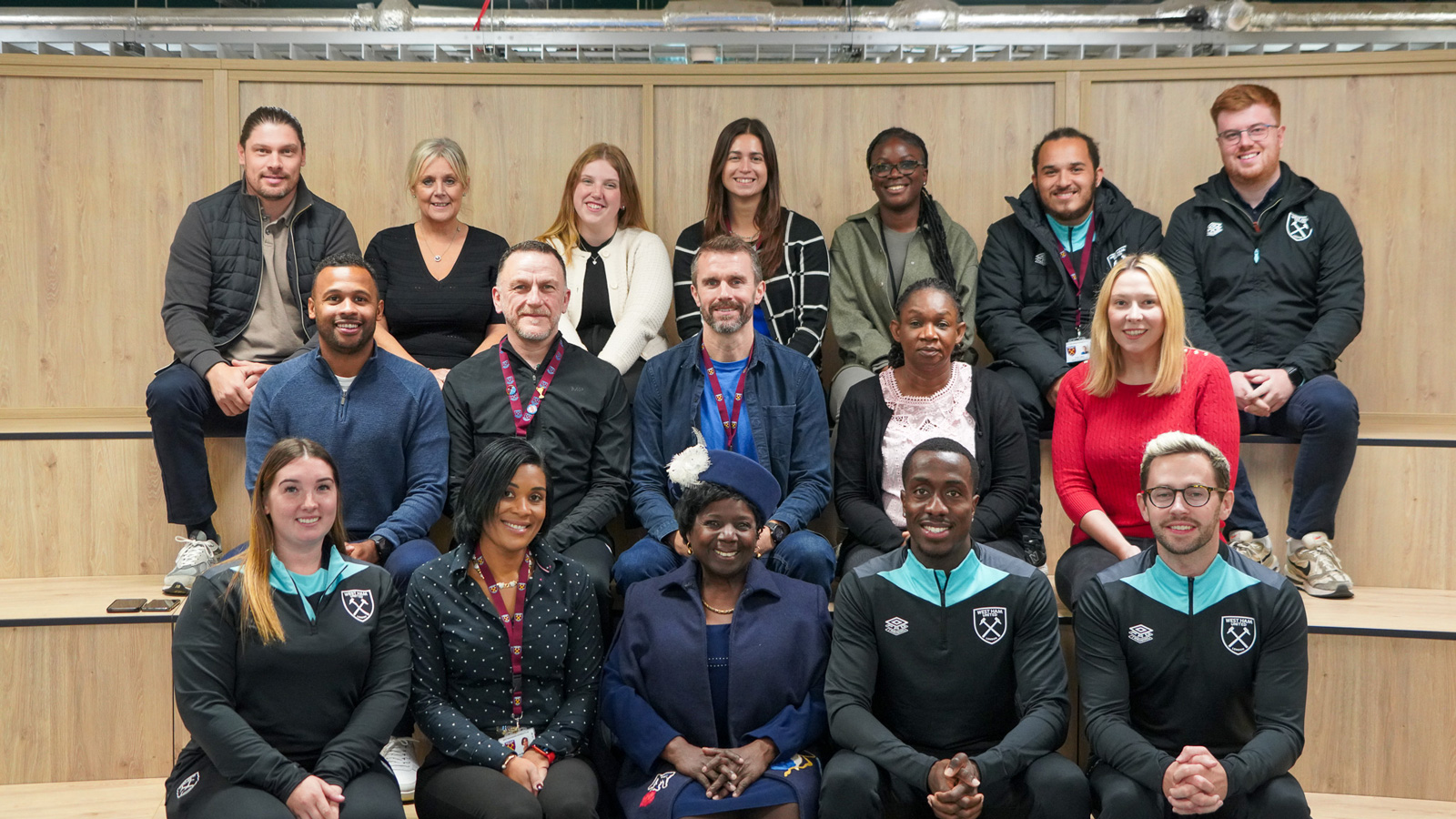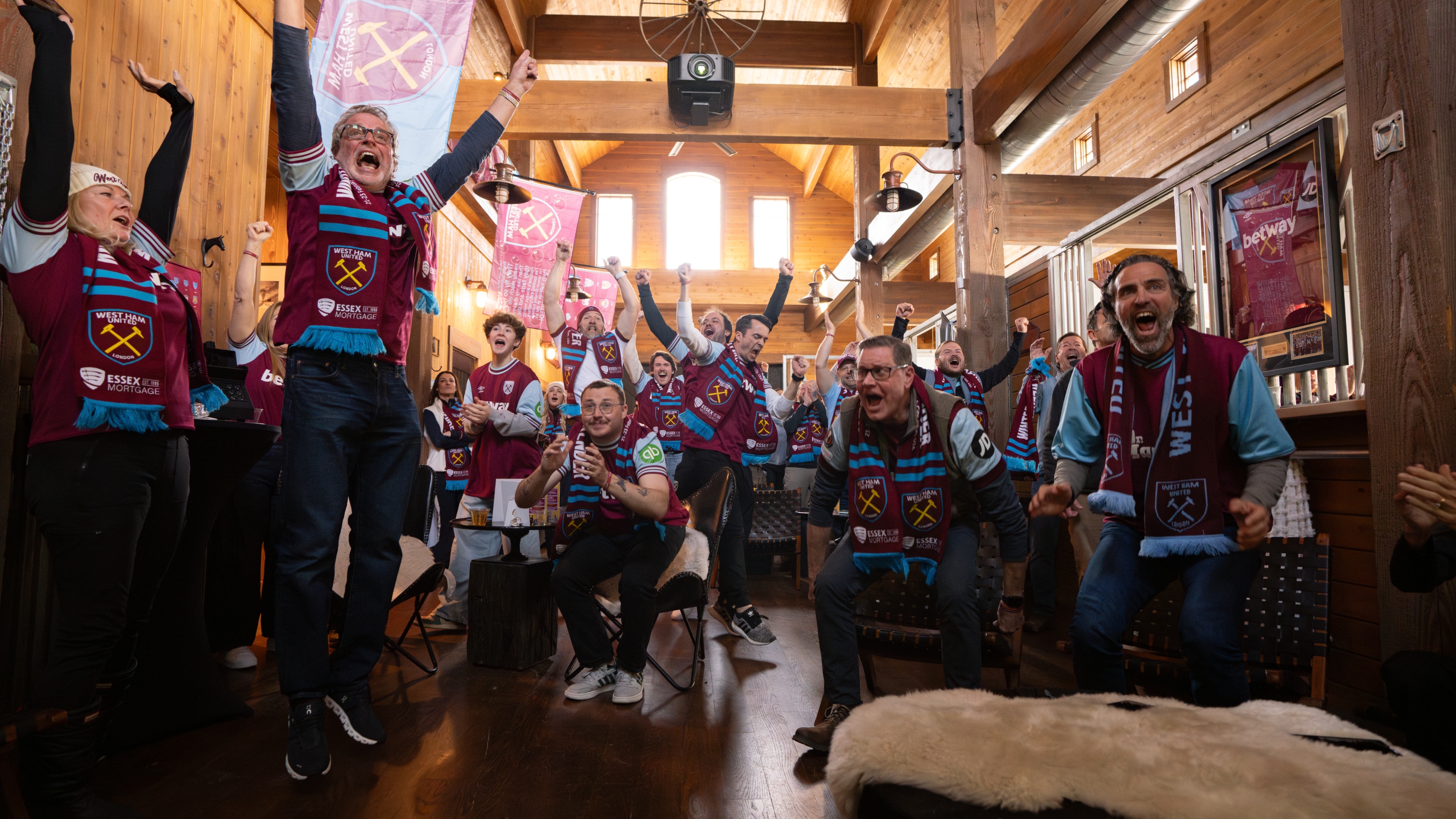The West Ham United Foundation has long been committed to supporting diversity amongst individuals, groups and communities, promoting inclusion and celebrating cultural heritage.
During the Black History Month (BHM) of October, the Foundation amplifies its efforts to acknowledge and celebrate the contributions of Black individuals to football and wider society.
As part of Black History Month 2024, which is themed ‘Reclaiming Narratives’, the team at the Foundation were given the opportunity to hear from Millicent ‘Millie’ Grant, Honorary King’s Counsel (KC) and current High Sheriff of Greater London.
Grant is the first ever Black High Sheriff of Greater London and has defied odds throughout her career, breaking down stereotypes and expectations.
During her talk to the Foundation, she said: “This Black History Month, we're reclaiming the narrative, and I think I'm somebody who's defied the expectations many people might have had of me because of my background, my race and my gender.
“In the areas of our greatest discomfort can be the areas of our greatest growth, so don't be frightened of it.”

The session also featured a Q&A in which staff were able to speak with Grant about the challenges she has faced during her career and what advice she might be able to offer to the diverse range of participants the Foundation reaches.
"It's important to set before young people role models possibly looking like them, but not necessarily. You can aspire to be like someone who doesn’t look like you or come from your background, because it’s about what you want to be”, she observed.
Growing up, Grant often saw her uncle dressed in his barrister outfit, despite her family circumstances differing from his, and seeing him in that professional role ignited a dream within her.
His success showed her that a career in law was possible, and more importantly, that it was possible for her.
The visual representation of her uncle in his professional attire became a symbol of what she could achieve, regardless of the barriers that might have otherwise seemed insurmountable.
His example served as a reminder that someone's background does not have to define their future, and it inspired her to pursue a career as a barrister herself.
Grant also detailed how, throughout her career, she often put herself forward for additional voluntary positions or work which perhaps those around her did not enjoy doing as she believed this would give her valuable extra skills that would support her in reaching her ultimate goal.
“It is not who you know. It is who knows you,” she explained, while informing the group that she would ‘say yes’ to opportunities that were presented to her.

This allowed her to forge her own path where she created and strengthened networks, even when at times she felt she did not belong and was questioned by others.
In addition to this, Grant detailed how she had often been overlooked and she credited one of her managers and one of her friends for being key parts of her gaining self-belief.
Similarly, when she was a legal executive, she saw an advertisement for training which specified people at her level were able to apply and this broadened her horizons.
This emphasised the importance of trusted relationships and roles held by the Foundation team and the consideration needed for the ways in which opportunities are promoted.
Concluding, the High Sheriff also spoke about her ceremonial gown which was designed by three students at the London College of Fashion, before being embroidered by prisoners in collaboration with Fine Cell Work, a charity and social enterprise that teaches prisoners and ex-prisoners to make high-quality needlework.
The collaborative approach to the creation of the gown is a fantastic example of the diverse community of Greater London, which is also reflected in the design.
Key symbols on the gown include the High Sheriff’s badge, the High Sheriff of Greater London’s lived values of good citizenship, depicted in both sign language and braille.
Artistic interpretations of London’s many landmarks, geography, and people resulting in a physical celebration of Greater London’s diversity, inclusivity, and culture.
Speaking about Grant’s visit, Ann-Marie Willison, Head of Community Development & Lead for Equality, Diversity & Inclusion at West Ham United Foundation, said: “We're honored that Millie was able to join us for what was a hugely inspiring talk. It's incredible to think about what she has achieved in her life so far and really goes to show the importance of role models, self-belief and hard work.
“Hearing from the Foundation team too, it's something they will not only take forward with them in terms of how they approach things and opportunities they take up, but also how they can use some of Millie's advice across the people they engage with while also recognising the crucial impact their support can have on someone’s life.”




